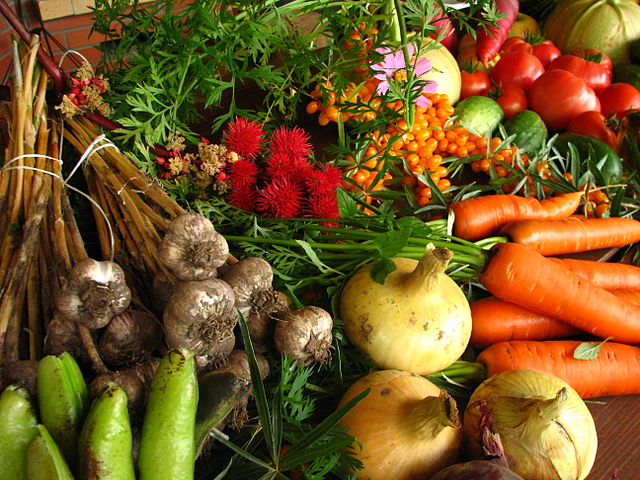
OVERVIEW
MANAGEMENT
PERFORMANCE
POSSIBILITIES
CAPITALS
ACTIVITIES
ACTORS
BURGESS
Food |
|
Burgess COMMENTARY |
|
Study: Organic Can Feed the World Sustainably
According to a review of 40 years of scientific research, organic food — which grew rapidly around the world in the past decade — can fulfill the world’s food needs while providing huge environmental, social and health benefits. One of the major arguments of Big Agriculture companies like Monsanto is that organic is a niche industry, one that can only feed the select rich in a few developed countries, but, due to cost, it cannot scale to feed the world’s poor or those in developing countries. Their solution: monoculture, using a few crops and huge amounts of heavily-subsidized pesticides and fertilizers to create vast mega-farms that have huge environmental externalities. “Conventional agriculture may produce more food, but it often comes at a cost to the environment. Biodiversity loss, environmental degradation and severe impacts on ecosystem services have not only accompanied conventional farming systems, but have often extended well beyond their field boundaries,” John Reganold, regents professor of soil science and agroecology at Washington State University, and doctoral candidate Jonathan Wachter wrote in a blog post about the study. Organic yields can be less than those from so-called conventional practices (in my opinion, organic was conventional for most of human history, before our agricultural system was hijacked by Big Ag), but not always. For example, in drought conditions — like those that have ravaged Californian farmers for the past few years — organic actually produced higher yields due to the greater water-holding capacity of organic soils, Reganold and Wachter found. And these types of extreme events are, unfortunately, becoming more and more common due to climate change. Organic could provide farmers with much-needed resilience. What is needed now, according to the report’s chief authors, are better policies globally that promote organic farming. That’s because, despite the rapid growth, organic still only accounts for a tiny percentage of global agriculture, due to the massive subsidies that go into conventional agriculture. “Significant barriers to farmers adopting organic agriculture hinder its expansion. Such hurdles include existing policies, the costs of transitioning to organic certification, lack of access to labor and markets, and lack of appropriate infrastructure for storing and transporting food,” wrote Reganold and Wachter. This is nothing new — we all knew organic has huge benefits. But the study now takes away one of the chief weapons in vast public-relations messaging used by Big Ag. Unfortunately, they have another tool at their disposal: money, which they have used to lobby for favorable regulations not only in the United States, but also internationally. This includes the millions they spent on a campaign of misinformation against GMO labeling initiatives in California, Washington and Nevada and, now, a lawsuit to stop a similar initiative in Vermont. Hopefully science will help organic win this battle, as the future of our planet, and farming, depends on it. Image credit: Wikimedia Commons Nithin Coca is a freelance journalist who focuses on environmental, social, and economic issues around the world, with specific expertise in Southeast Asia. FOLLOW NITHIN COCA @EXCINIT |
|
by Nithin Coca
on Friday, Feb 19th, 2016 |
| The text being discussed is available at http://www.triplepundit.com/2016/02/study-organic-can-feed-world-sustainably and |
